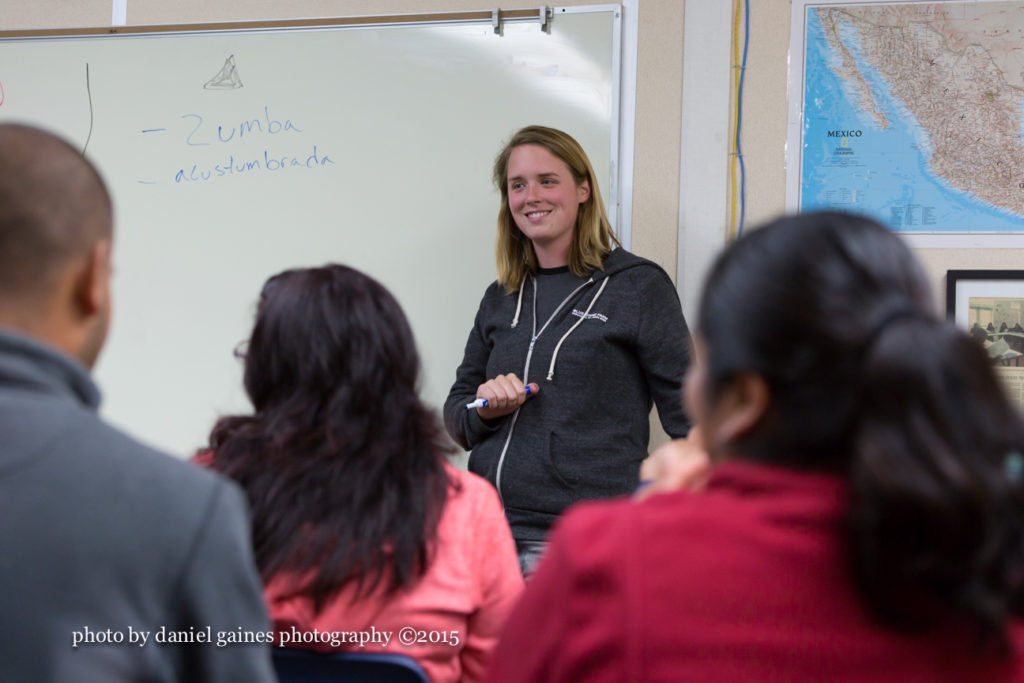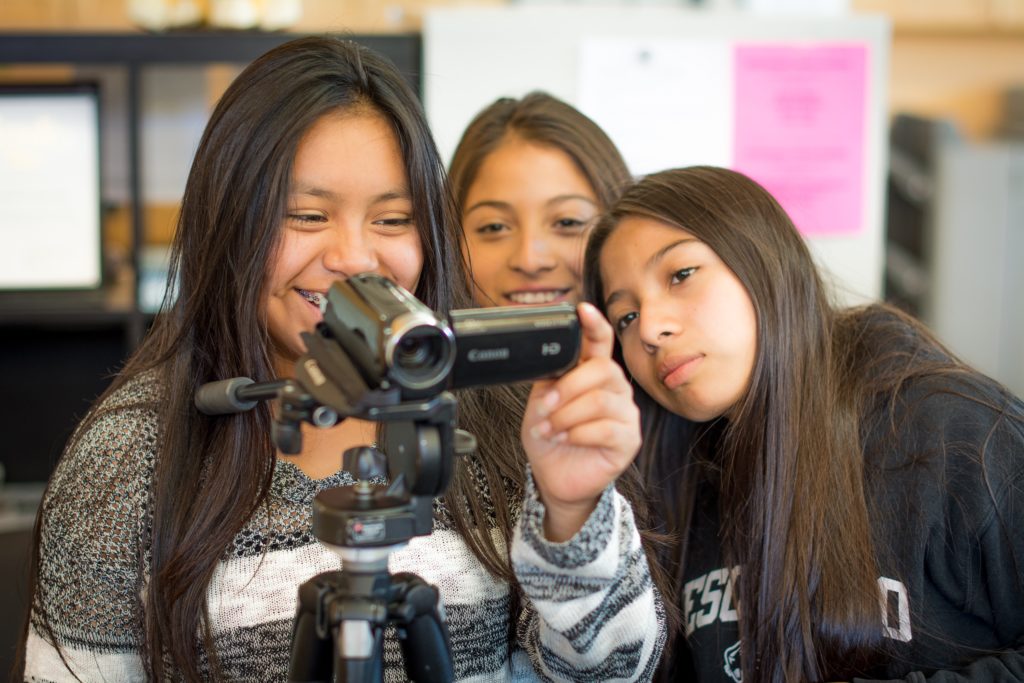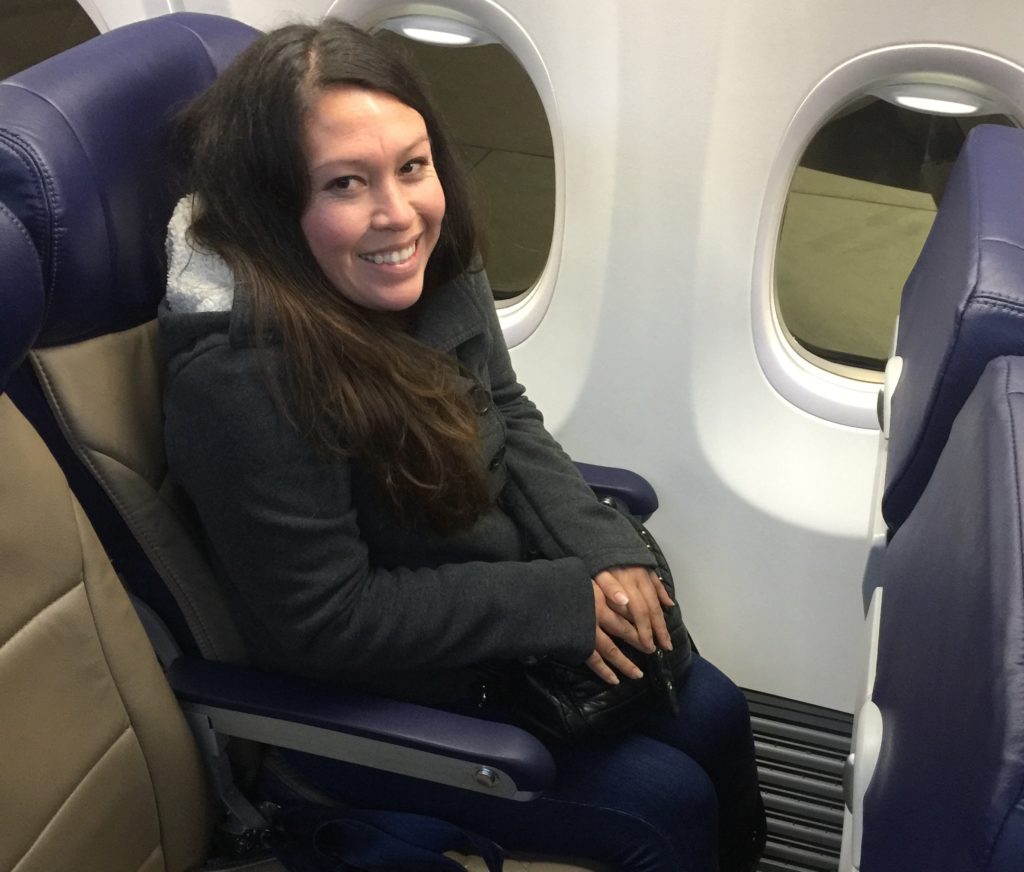
Adult Education Coordinator, Charlea Binford, teaches class.
For many in the United States, completing primary schooling is not only achievable, but also expected. That, however, is not the case for many of the adult participants in Puente’s education programs. In their native country, many, if not most, participants stopped their schooling in order to financially assist their families. For those with only their primary education, and the few that come with more education, obtaining a higher level of education seems like a far-reaching goal. At Puente, however, far-reaching becomes obtainable.
Puente uses Plaza Comunitaria, in collaboration with the Mexican Consulate in San Francisco. The program consists of three levels of progression that teach the Spanish speaking adults to read, write and speak in their native tongue and to complete their first and secondary education. Our partnership assesses students’ current academic skills and the areas of improvement. Students work alongside a tutor to improve on the needed areas and take a final assessment. At the completion of this program students receive a diploma from the Secretary of Public Education from Mexico.
Esmeralda, a Puente participant is in the process of obtaining her secondary education through this effort. Esmeralda not only completed her primary education certificate, she is now also a student in our ESL Puente/Cañada College Class. As a mother, Esmeralda finds educating herself important in order to help her children with their education. When asked why pursuing her education was important to her, Esmeralda notes, “I finished my primary education in Mexico but I wanted to continue with my secondary education here because in the past I didn’t have the opportunity.” For Esmeralda, Puente and its partnership with Cañada College, provided her the perfect opportunity to follow with a higher degree of education, an opportunity she wasn’t able to follow in Mexico. “What’s awe inspiring about Esmeralda is how her children are the catalyst for her dream of a higher education,” says Lizeth Hernandez, Puente’s Education Director. “Esmeralda understands that ‘while nothing in life is easy,’ with hard work anyone can further their education.”
Executive Director, Rita Mancera, says “Puente has worked hard to seek financial support for adult education students through its partnership with the Institute for Mexicans Abroad (IME), Silicon Valley Community Foundation and other funding sources. This support, along with childcare and transportation, removes any real or perceived barriers to furthering their education.”
Esmeralda seeks more educational opportunities to teach her children that anything is possible at any point in one’s life. Above all Esmeralda hopes that her children will achieve more than their mother. For Esmeralda, showing her children that if she can accomplish her dreams, they, too, can become professionals and reach their own dreams, is the foundation upon which she stands on. By increasing her exposure to diverse educational opportunities, Esmeralda now finds she can better assist her children with their homework. She recalls how prior to advancing her English skills she did not understand her children’s homework. Now with her added language skills; Esmeralda understands and can advise her children.
Through her educational experience at Puente, Esmeralda believes that anyone can achieve his or her dreams. She thanks Puente for the support and opportunities they provide to their participants and the multiple services they offer regarding how to be better parents, how to better teach one’s children, and the various other services available to them.
For more information about how to become a tutor for adult students, contact Ben Ranz at 650-262-4101.
To make a financial contribution to help underwrite the costs of childcare, transportation and school supplies, click here.

 Puente Youth Leadership Development and Employment Program Deadline is March 31.
Puente Youth Leadership Development and Employment Program Deadline is March 31. Eufemia Castro’s life has had a lot of firsts. She’s the first in her family to attend college – but not as a youth: she’s the mother of two adolescents. She and her friend Liliana
Eufemia Castro’s life has had a lot of firsts. She’s the first in her family to attend college – but not as a youth: she’s the mother of two adolescents. She and her friend Liliana 
